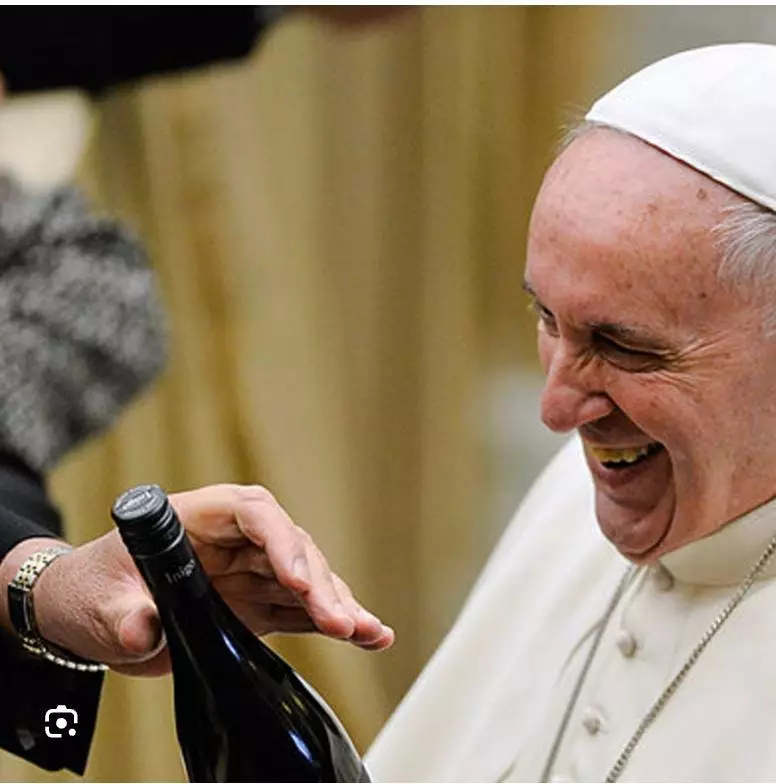With the passing of Pope Francis, the world has not only lost a revered spiritual leader but also a staunch advocate for traditional values, among which is the craft of winemaking. Italian wine producers, steeped in a legacy that intertwines their craft with the rich tapestry of their cultural heritage, feel a poignant sense of loss. The Pope, who shared Italian roots through his father from Asti, had recently praised the contributions of Italian wine producers, recognizing their role not only in the economy but also in upholding environmental and ethical standards. His remarks underscored the idea that winemaking is less about mere production and more about the holistic approach to land stewardship and community development. As the industry grapples with this transition, the question remains: can the values instilled by the Pope continue to inspire these producers in the face of global shifts?
The Vatican Connection: A Symbolic Yet Practical Transition
The unique relationship between the Vatican and Spanish winery Heras Cordón presents a fascinating case study in cultural symbolism and ongoing tradition. Since 2001, this winery has held the distinction of being the exclusive supplier for the Vatican, a role that highlights the intersection of religion and commerce in a way that is rarely seen. While the shot-term implications of a new papacy may rattle the vineyards of Rioja, the long-term effects are worth pondering. As the world changes and new leadership emerges, will the commitments to quality and tradition persist? Heras Cordón’s wines, adorned with papal insignias, offer a glimpse into a world where sanctity meets celebration—a delicate balance that both producers and consumers will strive to maintain.
Economic Realities Shaping Drinking Trends Among Gen Z
Unlike any prior generation, Gen Z is navigating their formative years in a world marked by economic uncertainty and pervasive digital technology. A recent study conducted by Rabobank reveals that economic factors, rather than health consciousness or lifestyle changes, play a pivotal role in the declining alcohol consumption among this cohort. With stagnant wages and precarious job prospects, young adults are opting for more modest lifestyle choices that reflect their financial realities. This signals a departure from the traditional narratives around health or social engagement, suggesting a need to appreciate economic literacy as a key driver in shaping current and future consumption patterns. As Gen Z redefines social experiences, brands embracing adaptability may lead the industry toward new models of engagement.
Innovation in the Beverage Industry: A Sustainable Future
In a magnificent display of creativity, young companies are exploring the potential for sustainable materials derived from traditional beverage wastes. For instance, Arda Biomaterials has received substantial funding to develop leather alternatives from the remnants of brewing processes. This innovation is not just a response to the excessive plastic pollution plaguing our ecosystems; it represents an exciting revival of pre-plastic craftsmanship, emphasizing a return to natural materials. By positioning themselves as eco-conscious alternatives in a market exhausted by synthetic materials, companies like Arda are reshaping consumer expectations and paving the way for sustainable innovation. Such strides may also press established brands, including major beverage companies, to rethink their production processes and attitudes toward waste.
The Surprising Health Benefits of Wine: Expanding the Narrative
Traditionally lauded for its health benefits, red wine has long been the cornerstone of the French Paradox—contradicting the notion that a high-fat diet inevitably leads to ill health. Surprisingly, recent research suggests that white wines and Champagne may hold their own in promoting cardiovascular well-being. A pivotal study led by researchers at Fudan University highlighted that adjusting consumption patterns could substantially diminish the risk of sudden cardiac arrest among middle-aged and older adults. What is revealed here is not merely an expansion of what types of wine confer health benefits but a broader insight into lifestyle adjustments that pave the way for improved heart health. As the conversation evolves, consumers will likely gravitate toward a more inclusive understanding of wine as a healthful companion rather than viewing it solely through the lens of indulgence.
As we traverse this landscape marked by both disruption and revival, it becomes evident that wine is not merely a beverage but a narrative thread that weaves together community, economy, tradition, and innovation. Each sip encapsulates a story that reflects our collective journey toward sustainability, health, and identity.


Leave a Reply